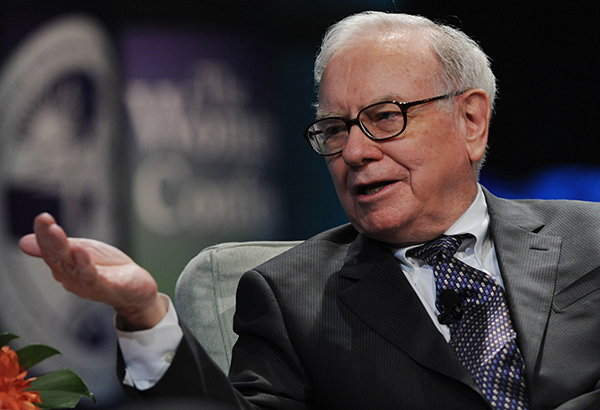
With all the handwringing these days about how the world has “changed forever,” it’s encouraging to note that some things do remain the same. Like how the regular bridge match between Microsoft founder Bill Gates and Berkshire Hathaway CEO and uber-investor Warren Buffett has endured during the pandemic lockdown.
According to Buffett (who claims to spend eight hours a week playing bridge), it’s the only game at which he can beat the OG computer geek. “I probably play 100 times as often as Bill,” he told CNBC in 2019. “So that probably is the only game in the world where I would have a slight edge with him.”
Buffett, who turns 90 in August, and Gates, who turns 65 in October, aren’t sitting down at the same table anymore. As Gates noted in a May 18 blog post, they’ve taken their rivalry online since Covid-19, using a platform called Bridge Base; and despite losing regularly to the soon-to-be nonagenarian, Gates (holed up in his mansion on Lake Washington) still says, “Warren Buffett is my favorite partner.” (“I’ll keep our screen names between us,” he added.)
Bridge is “the best exercise there is for the brain,” says Buffett. And for those investors who’ve clung to his every word for the past 50 years, there’s little doubt that the Oracle of Omaha is as sharp as ever. In early May, Berkshire Hathaway held a virtual shareholder meeting for the first time in its history. The AGM, which used to be known as Woodstock for capitalists and held in Buffett’s Nebraska hometown, still drew a huge online crowd—and as always, the attraction was not the company’s financials (especially not this year), but the words of its founder.
Many business leaders make the mistake of “letting the numbers do the talking,” but Buffett—at both the AGM, and in his widely circulated letters to shareholders—is known for communicating with clear and concise language. As Karen Berman and Joe Knight, founders of the Business Literacy Institute, noted in a Harvard Business Review article 10 years ago, Buffett is “famously down-to-earth, conversational, and witty. Never mind for now the specific points he makes: how he communicates his message is a lesson for all of us.”
They highlight four lessons in particular to be taken from Buffett’s communications style. He uses:
- numbers to season the points he makes (and not make them “the main dish”)
- analogies and metaphors
- honesty and transparency
- facts to put things in realistic context
Metaphors are a staple of Buffett’s letters—including this description, from 2008, of the financial crisis: “By year end, investors of all stripes were bloodied and confused, much as if they were small birds that had strayed into a badminton game.”
Throughout his career, Buffett has been the first to admit when he’s made a bad bet—demonstrating a level of honesty that’s rare among the CEO set. He did it again this year, when he announced at the AGM that he’d sold his stake in four U.S. airlines at a huge loss. “When we bought [airlines], we were getting an attractive amount for our money,” Buffett said. “It turned out I was wrong about that business because of something that was not in any way the fault of four excellent CEOs.”
He also admitted that part of the reason for the sale was his own uncertainty: “I don’t know whether two or three years from now that as many people will fly as many passenger miles as they did last year,” he said. “They may and they may not, but the future is much less clear to me.”
It’s humbling when the world’s fourth-richest man admits that he sometimes gets it wrong, and that his crystal ball isn’t as clear as the mythologists might have it. But make no mistake: over the long term, Buffett has been a good bet for investors, with stock in Berkshire Hathaway rising from $19 in 1965 (when Buffett took over the company) to over $260,000 a share by late May 2020.
And if you happen to be on Bridge Base one day, and some anonymous player from Omaha asks if you’d like to play a game? Well, consider that your lucky day.
Does your company’s leadership want to embrace storytelling? We’d love to hear from you. Call us at 1.877.777.ECHO (3246) or email us at hello@echostories.com.





